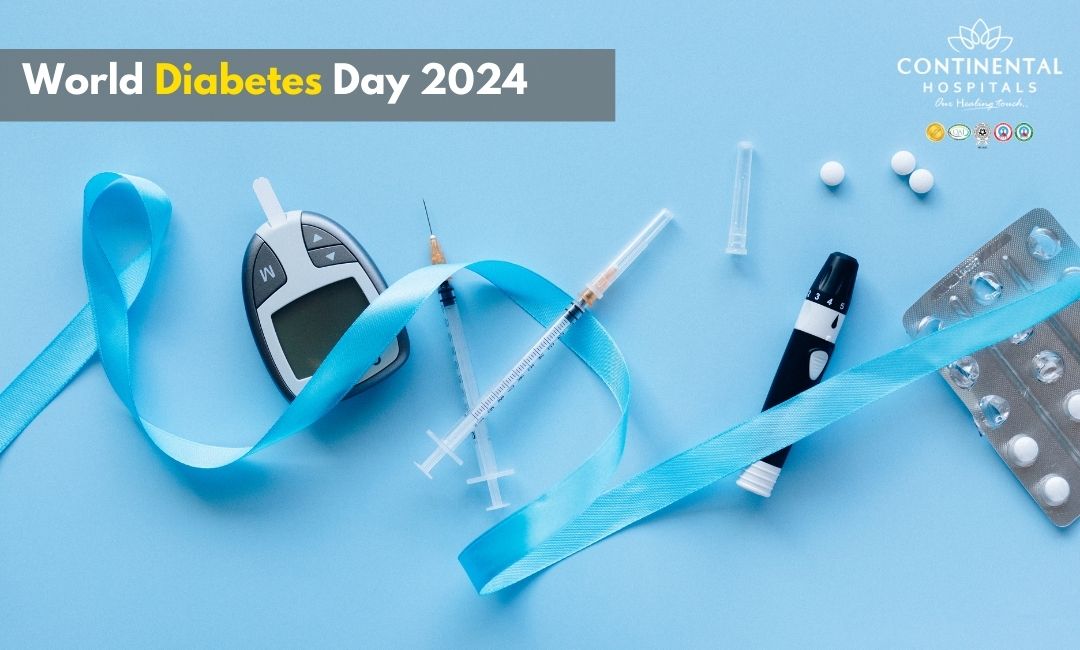World Diabetes Day, celebrated on November 14 each year, is a global event that aims to raise awareness about diabetes, its prevention, and the need for improved access to essential diabetes care. It serves as a reminder of the significant impact diabetes has on individuals, families, and communities around the world. In 2024, the theme for World Diabetes Day focuses on the importance of education and support for individuals living with diabetes, emphasizing the role of healthcare professionals and the community in managing this chronic disease.
Understanding Diabetes
Diabetes is a metabolic disorder characterized by high blood sugar levels over a prolonged period. It occurs when the body either cannot produce enough insulin, a hormone that regulates blood sugar levels, or cannot effectively use the insulin it produces. There are three primary types of diabetes:
Type 1 Diabetes: An autoimmune condition where the body’s immune system attacks insulin-producing beta cells in the pancreas, leading to little or no insulin production. It typically develops in children and young adults but can occur at any age.
Type 2 Diabetes: The most common form of diabetes, Type 2 occurs when the body becomes resistant to insulin or when the pancreas does not produce enough insulin. It is often associated with obesity, sedentary lifestyles, and poor dietary choices. It can be managed with lifestyle changes, medication, and insulin therapy.
Gestational Diabetes: This type occurs during pregnancy and usually resolves after childbirth. However, women who experience gestational diabetes are at a higher risk of developing Type 2 diabetes later in life.
The Global Diabetes Crisis
The World Health Organization (WHO) estimates that over 422 million people worldwide live with diabetes, and this number continues to rise. The increase in diabetes prevalence can be attributed to various factors, including:
Sedentary Lifestyle: Modern lifestyles often involve less physical activity, contributing to weight gain and increased risk of Type 2 diabetes.
Unhealthy Diet: Diets high in processed foods, sugars, and unhealthy fats can lead to obesity, a significant risk factor for Type 2 diabetes.
Genetic Factors: Family history plays a role in the risk of developing diabetes, particularly Type 2.
Aging Population: As people age, their risk of developing diabetes increases, leading to a growing number of cases among older adults.
Urbanization: Rapid urbanization often results in lifestyle changes that contribute to diabetes risk, such as reduced physical activity and increased consumption of unhealthy foods.
World Diabetes Day 2024 Theme: Diabetes and Well-Being
World Diabetes Day 2024, themed "Diabetes and Well-Being," emphasizes the critical connection between effective diabetes management and overall health and happiness. This theme highlights the importance of a holistic approach that encompasses not only physical health through proper nutrition and regular exercise but also mental and emotional well-being. Individuals living with diabetes face unique challenges that can impact their quality of life, making it essential to prioritize mental health support, stress management, and community connections. By fostering a supportive environment and empowering individuals with education and resources, we can enhance their ability to manage diabetes effectively and lead fulfilling lives.
Importance of Well-Being in Diabetes Management
Effective diabetes management is crucial for individuals living with this chronic condition, as it directly impacts their health, quality of life, and overall well-being. Here are some key reasons why diabetes management is essential:
Blood Sugar Control: Proper management helps maintain blood glucose levels within the target range, reducing the risk of both hyperglycemia (high blood sugar) and hypoglycemia (low blood sugar). Consistent blood sugar control is vital for preventing acute complications and long-term health issues.
Prevention of Complications: Uncontrolled diabetes can lead to serious complications, including cardiovascular disease, kidney damage, nerve damage, vision problems, and amputations. Effective diabetes management significantly lowers the risk of these complications, ensuring a healthier future.
Enhanced Quality of Life: Managing diabetes effectively allows individuals to lead more active and fulfilling lives. With proper control, people can engage in regular activities, enjoy their favorite foods, and participate in social events without the constant worry of blood sugar fluctuations.
Weight Management: Many people with Type 2 diabetes struggle with overweight or obesity. Effective diabetes management often includes dietary changes and regular physical activity, which can lead to weight loss and improved insulin sensitivity, further aiding in blood sugar control.
Mental and Emotional Health: Living with diabetes can be emotionally challenging, leading to feelings of stress, anxiety, and depression. Proper management includes emotional support and stress-reduction strategies, which can improve mental health and overall well-being.
Education and Empowerment: Diabetes management encourages individuals to learn about their condition, treatment options, and the impact of lifestyle choices. This education empowers patients to take an active role in their health, making informed decisions that lead to better outcomes.
Reduced Healthcare Costs: Effective diabetes management can lower healthcare costs by preventing complications and reducing the need for hospitalizations and medical interventions. By investing in diabetes care, individuals and healthcare systems can achieve significant long-term savings.
Role of Healthcare Professionals
Healthcare professionals play a vital role in diabetes management and education. They are essential in providing accurate information, personalized care, and emotional support. Some key responsibilities include:
Individualized Care Plans: Develop tailored care plans that address the unique needs and circumstances of each patient.
Regular Check-ups: Conducting routine screenings and assessments to monitor the progress of diabetes management.
Patient Education: Providing clear and concise information about diabetes, treatment options, and lifestyle changes.
Encouraging Self-Management: Empowering patients to take charge of their health through education and support.
World Diabetes Day serves as an important reminder of the global diabetes crisis and the need for increased awareness, education, and support for individuals living with diabetes. By promoting healthy lifestyles, improving access to healthcare, and fostering a supportive community, we can empower individuals to manage their condition effectively and reduce the burden of diabetes on society. Together, we can make a difference in the fight against diabetes and improve the quality of life for millions of people around the world. As we celebrate World Diabetes Day in 2024, let us commit to raising awareness and supporting those affected by this chronic disease.
Related Blog Article:
How Coffee and Tea Can Help Prevent Type 2 Diabetes?
Eating These Foods Daily Might Increase Your Risk Of Diabetes
How Stress Affects Diabetes
.webp)







